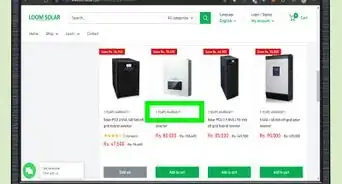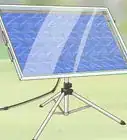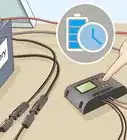This article was co-authored by Guy Gabay. Guy Gabay is a Solar Energy Contractor and the CEO of AmeriGreen Builders, a full-service solar energy, roofing, HVAC and window installation company based in the greater Los Angeles, California region. With over eight years of experience in the construction industry, Guy leads the AmeriGreen team focusing on bringing an educational approach to energy efficient home upgrades. Guy holds a B.S. in Marketing from California State University - Northridge.
There are 7 references cited in this article, which can be found at the bottom of the page.
This article has been viewed 25,829 times.
Solar energy is clean and efficient, which is why it’s becoming more and more popular. Between 2000 and 2011, the industry has seen a 40% increase in growth yearly.[1] There are many aspects you can get involved with professionally, including design, assembly, installation, repair, and more.[2] But before you start applying for jobs, you should do some research to see where you’ll fit best.
Steps
Researching the Solar Industry
-
1Acquaint yourself with common terms in the industry. Even if you’re passionate, if you can’t talk the talk, you probably won’t get a job. Do some online research on photovoltaic power, inverters, shading considerations, semiconductor processors, and so on.[3]
- Check online solar energy blogs to pick up common solar energy lingo. Familiarize yourself with the meaning of jargon that occurs frequently.
-
2Attend local conferences or classes on solar power.[4] Because the solar industry is fresh and exciting, new research is released all the time. Keep up to date by attending local conferences, taking classes at a local university, or at clean energy informational seminars.[5]
- Many conferences and classes are advertised online. Try an online keyword search for something like, “Solar energy events near me.”
- Some solar organizations, like Solar Energy International (SEI), offer free online courses that you can take to improve your solar knowledge.[6]
Advertisement -
3Get involved with local solar volunteer projects. If there aren’t volunteer projects, try calling a local solar energy company and asking to volunteer with their HR department. This will allow you to rub shoulders with experienced professionals who you can ask about the solar industry.[7]
- If you were interested in getting a job in the sales side of solar, you could call an installer, ask to speak to a salesperson, and offer to buy them lunch in exchange for you job shadowing them for a day.[8]
-
4Look up general information on the solar industry online. Doing this is a great way of getting your bearings, especially if you’re brand new to solar. Keep track of aspects that spark your interest and investigate these areas more later.[9]
- Some regions, like those that don’t receive much sunlight, may have fewer opportunities for solar involvement. Use online solar power output maps to find where the solar industry is most active.
- Look up information on careers in solar power with the Bureau of Labor Statistics to get an overview of the industry and a list of common jobs.[10]
- Professional associations, like the American Solar Energy Society (ASES), can be great places to learn information and get in touch with others who are interested in the solar industry.[11]
Equipping Yourself for a Job
-
1Choose a job to pursue in solar energy. If you can’t settle on just one, try to limit yourself to two or three. This will allow you to more thoroughly explore specific jobs so you can determine whether or not they are suitable for you. Pay close attention to the education, certification, or experience requirements of jobs.
- A breakdown of the requirements and pay expectations of most solar positions can be found on the Bureau of Labor website.[12]
- Some popular solar related jobs include assembler, installer, repairer, welder, construction manager, salesperson, solar engineer, and researcher.
- Within solar, jobs often fall into some of the following main categories: administrative, design, assembly/installation, logistics, maintenance, sales, and research.[13]
-
2Get a four-year degree in a solar related field. Mechanical, industrial, electrical, and software engineers all play a part in the solar industry. With one of these degrees and a certification in your area of specialty, like photovoltaic cell research or solar power plant design, you'll be a more competitive candidate.[14]
- Physicists, chemists, and material scientists play a major part in the research and development of solar technology.
- If you want to start working in solar quickly, a four-year degree in solar engineering might not be feasible.[15]
-
3Get certified as a technician or installer for quicker involvement. Getting certified as an assembler, installer, or repairer of solar energy components will take less time than positions requiring a college degree. Look online for technical programs and vocational schools near you that offer certifications.[16]
- The North American Board of Certified Energy Practitioners (NABCEP) offers online certifications for solar energy professionals.[17]
-
4Connect with a current solar industry worker. Now that you’ve got a short list of potential jobs, connect with people who already work in those positions. Solar energy veterans will be able to advise you on how to best make your dreams of getting into solar energy a reality.
- Call up a local solar company and ask to speak to the HR department. Explain that you’re interested in pursuing a job in solar energy and you’d like to informally interview a current worker.
- When speaking with a solar worker, ask if there’s anyone you should contact with regard to the positions you’re pursuing. The worker might be able to put you in touch with someone who can help.
-
5Maintain a healthy professional network. You never know when you’ll need some advice or assistance from one of your solar energy colleagues. Check in with contacts you have a good relationship with occasionally to keep these relationships strong.
- You don’t have to waste a lot of time doing this. A quick email asking how things are and sharing some personal details should be more than enough.
- Remind yourself to stay in touch by writing a reminder on your calendar or using a repeating monthly notification in your phone.
Applying for a Job
-
1Highlight your involvement with solar in your resume. This is particularly important if you're trying to break into the industry. Include solar related volunteer work, educational accomplishments, professional associations, and certifications.
-
2Pursue jobs persistently. Because the solar industry continues gaining popularity, employers receive a high volume of applicants. If you don’t end up getting selected, stay positive! Demonstrating your persistence and dedication will make you more desirable to employers.[18]
- This might go without saying, but try not to come on too strong while being persistent. Oftentimes, this can come across as pushy and actually hurt your chances of getting the job.
- After you submit applications, follow up with a phone call. This will set you apart from other applicants while making you seem more enthusiastic about getting the job.
-
3
-
4Prove your character and interpersonal skill. Many solar upgrades and replacements can be quite pricey. Because of this, interviewers will want to know that you are trustworthy and customer focused. The happier your customers, the more referrals you'll get.
- Some solar companies see as much as 85% of sales coming from referred customers.[21]
-
5Act professionally during the interview. Due to the recent upsurge in investment in renewable forms of energy, the solar industry has become somewhat more formal. Acting professionally and with integrity will earn you points with interviewers.
- For most jobs in solar, it’s a good idea to wear a suit to interviews. Keep your materials well organized so you come across as prepared.[22]
References
- ↑ http://www.environmentalscience.org/career/solar-engineer
- ↑ Guy Gabay. Solar Energy Contractor. Expert Interview. 4 August 2020.
- ↑ https://solarpowerrocks.com/solar-employment/how-do-i-get-started-in-the-solar-industry/
- ↑ Guy Gabay. Solar Energy Contractor. Expert Interview. 4 August 2020.
- ↑ https://solarpowerrocks.com/solar-employment/how-do-i-get-started-in-the-solar-industry/
- ↑ https://www.solarenergy.org/courses/introduction-to-renewable-energy/
- ↑ Guy Gabay. Solar Energy Contractor. Expert Interview. 4 August 2020.
- ↑ https://solarpowerrocks.com/solar-employment/how-do-i-get-started-in-the-solar-industry/
- ↑ https://solarpowerrocks.com/solar-employment/how-do-i-get-started-in-the-solar-industry/
- ↑ https://www.bls.gov/green/solar_power/
- ↑ http://www.environmentalscience.org/career/solar-engineer
- ↑ https://www.bls.gov/green/solar_power/
- ↑ Guy Gabay. Solar Energy Contractor. Expert Interview. 4 August 2020.
- ↑ https://www.bls.gov/green/solar_power/
- ↑ http://www.environmentalscience.org/career/solar-engineer
- ↑ https://www.bls.gov/green/solar_power/
- ↑ http://www.nabcep.org/certification
- ↑ https://solarpowerrocks.com/solar-employment/how-do-i-get-started-in-the-solar-industry/
- ↑ Guy Gabay. Solar Energy Contractor. Expert Interview. 4 August 2020.
- ↑ http://business.time.com/2012/08/15/the-power-within-why-internal-recruiting-hiring-are-on-the-rise/
- ↑ https://solarpowerrocks.com/solar-employment/how-do-i-get-started-in-the-solar-industry/
- ↑ https://solarpowerrocks.com/solar-employment/how-do-i-get-started-in-the-solar-industry/













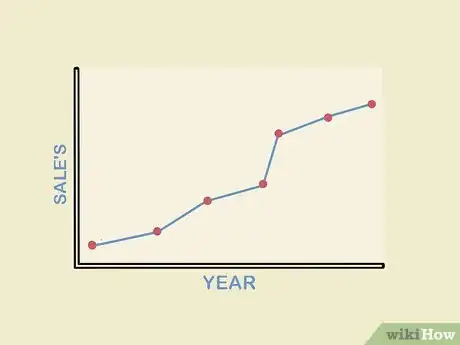

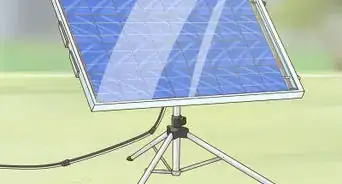
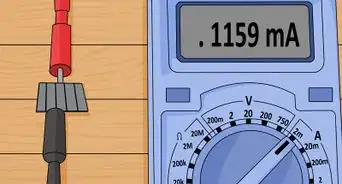

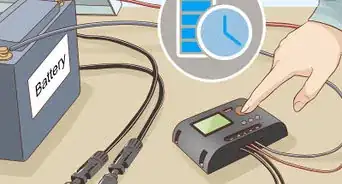

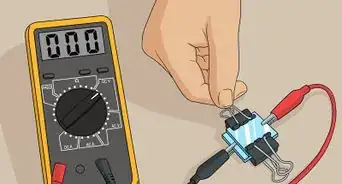
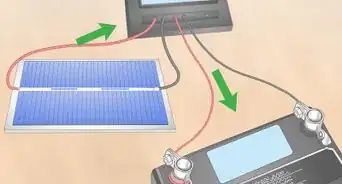
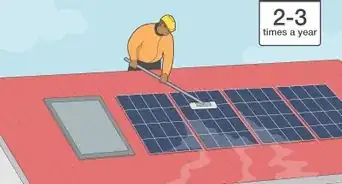

-Step-12-Version-2.webp)
-Power-Generator-Step-11-Version-2.webp)
